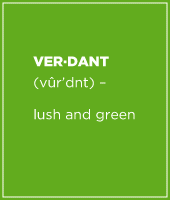


|
When Virgin Atlantic announced its program of planting trees to offset carbon dioxide emissions from its limousines, there was no mention of reducing fuel consumption on its airplane fleet. (One wag calculated that compensation would require 59 million trees.) Virgin subsequently announced it’s investing $400,000,000 in an ethanol plant to produce alternative fuel. Score one for them! Weyerhaeuser’s claim to be marketing “environmentally friendly” wood is challenged by Forest Ethics program coordinator Daniel Hall who explains that the wood is actually clear-cut without permission on indigenous territory in the Whiskey Jack Forest within Canada’s threatened Boreal Forest. Weyerhaeuser’s defense that its wood is certified by the Sustainable Forestry Initiative is also challenged by Hall. “This is greenwashing,” he complains, suggesting shoppers, “should balance industry claims by cross checking with the Forest Stewardship Council for environmentally responsible forest products and with the U.S. Green Building Council for credible green building standards.”
POSITIVE STEPS Paper: Office Depot, Staples and Kinko’s are stocking postconsumer recycled paper (PCR) in response to consumer campaigns led by Rainforest Action Network and Forest Ethics. Apparel: Nike, Reebok, Timberland, Patagonia, L.L.Bean, Prana and other clothing/shoe manufacturers are using organic cotton and introducing polyester fleece made from recycled beverage bottles (which reduces use of petroleum to make “virgin” fleece). Cosmetics: Aveda,
Origins, Revlon,
L’Oreal,
The
Body Shop, Burt’s
Bees and many other personal care companies are substituting
plant essential oils for synthetic fragrances and phasing out toxic
chemicals. Furnishings: ABC Home, Herman Miller, Ikea, Greener Lifestyles, Crate & Barrel, VivaTerra and Green Culture are among companies making or selling furniture and interior decoration products made of renewable, recycled materials or wood from better-managed forests, as well as fillings that use alternatives to toxic flame retardants. |
|
|
|
|



| © 2006 Verdant Magazine. All rights reserved. |
















